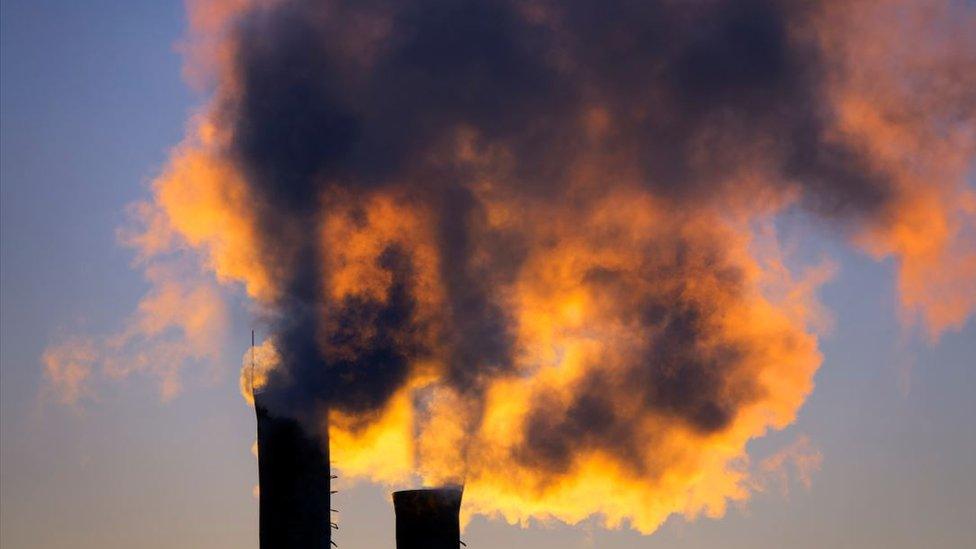Greenhouse gases from Scottish industry at 10-year low
- Published

Harmful emissions from industry in Scotland have dropped to a ten-year-low
Greenhouse gas emissions by Scottish industry are at a 10-year low, according to new figures.
The drop is credited to a change in pollutants emitted by businesses, as Scotland moves to become more sustainable and resource-efficient.
The latest data comes from the Scottish Environment Protection Agency (SEPA).
The release of specified pollutants to air, water and land are monitored at SEPA-regulated industrial sites.
The analysis was published in the .
Since 1993, owners or operators of facilities that have met the SPRI reporting requirements have reported on an annual basis.
Data from SPRI is used to fulfil the reporting requirements of the European Pollutant Release and Transfer Register (E-PRTR).
It also provides information about off-site transfers of waste from industry sites.
'Further progress to be made'
There has been an increase in the number of sites included in the data, with 1,237 reporting sites in 2017, compared with 1,221 in 2016.
Scottish industry puts pressure on the environment through emissions to the air and water environment and through waste management activities.
The closure of Longannet made a difference to emissions reported
Green house gas levels have reduced 57% since 2007 when 26 Megatonnes (Mt) of pollutants were released. The 2017 total was 11 Mt.
The largest decrease, according to the data, was in 2016, with Longannet power station only operational for the first few months of the year.
There was a further reduction of 6% (just under 1 Mt) in 2017 as the first full year with no emissions from the plant.
Terry A'Hearn, SEPA chief executive, said: "The most successful countries in the 21st century will function within our planet's means to support us.
"Through our regulatory strategy, One Plant Prosperity, SEPA is helping business grow sustainably while reducing their environmental burden.
"Whilst it's encouraging to see greenhouse gases from Scottish industry at a 10-year low, we recognise further progress needs to be made.
"The data that SPRI holds is vital to helping us understand how these changes are impacting on our environment both directly and indirectly, ensuring Scotland can identify priority areas to reduce releases and track progress."
- Published12 June 2018
- Published18 August 2015